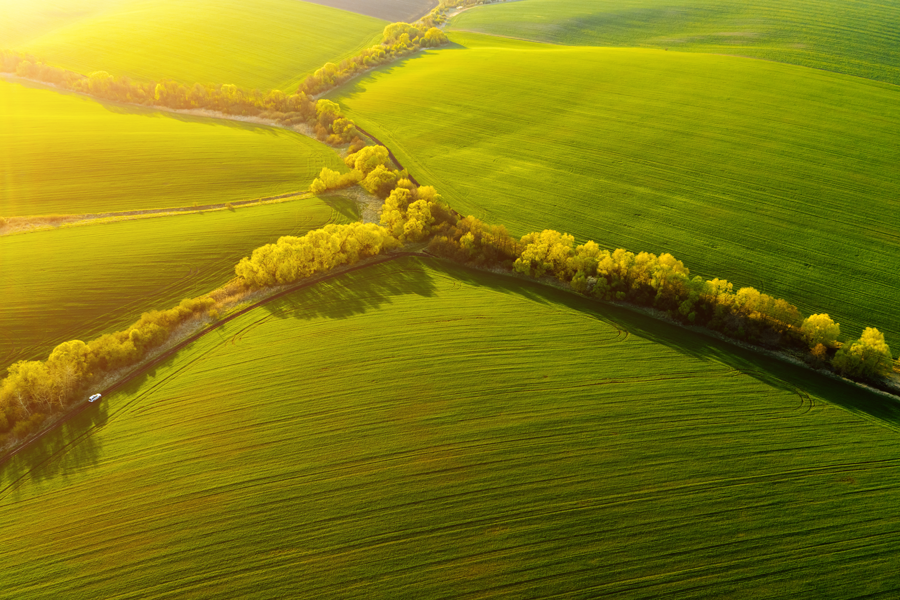Farmers have a “unique opportunity” in tackling climate change
29th November 2020
As the farming sector comes under increasing pressure to cut carbon emissions, experts and industry professionals say farmers have a unique opportunity over other industries, to not only become carbon neutral, but to be part of the solution to the climate emergency.
As the farming sector comes under increasing pressure to cut carbon emissions, experts and industry professionals say farmers have a unique opportunity over other industries, to not only become carbon neutral, but to be part of the solution to the climate emergency.
The comments were made during the Leaf Annual Conference this month (20th November) – chaired by BBC broadcaster and journalist Tom Heap – which focused on dealing with the climate change emergency.
Action on climate change is needed “urgently” and the window for maintaining the 1.5ºC climate at the end of the century is closing fast, according to Jonathan Wadsworth, lead climate change specialist at the World Bank Group.
Mr Wadsworth warned that the negative impacts of climate change threaten to risk decades of progress for the agriculture industry, but said farmers are part of the solution, especially when it comes to carbon sequestration.
Chris Buss, director of IUCN’s forest conservation programme, said we should see nature as a “key component” and consider “not just the protection of nature, but also the use of nature in our farming systems”.
Can farming be carbon neutral by 2040?
NFU president Minette Batters said she believes with the right policies and incentives, the NFU target of becoming carbon neutral by 2040 – 10 years ahead of the government schedule – is “completely achievable”. She added that “the next decade is the decade of the farmer”, looking evermore at at carbon sequestration, renewable energy and climate smart farming”.
Commenting on livestock she said key areas for reducing emissions would be reducing feed proteins and improving genetics and health, to allow the same number of livestock with a massively reduced footprint. Ms Batters’ farm borders the Wiltshire/Hampshire River Avon and invests in grass, putting in herbal leys and clover to lock in nitrogen so that less synthetic fertiliser is used.
“If we get this right we’re going to get back to proper sustainable farming, getting back into rotations and hopefully getting more livestock as part of rotations,” she said. “A big frustration with the anti-meat and plant-based [movement] is that it is livestock that puts the biodiversity back into the soil and allows us to step back from synthetics.”
She stressed the importance of public money for public goods to incentivise measures to reduce agriculture’s carbon footprint, noting the high cost of regulation for farmers.
Speakers also highlighted food waste levels, likely caused by a ‘cheap food policy’, as “disastrous” – with a third of emissions potentially being removed if this was addressed.
Soil health
Delegates heard from Leaf demonstration farmer Duncan Farrington, who has monitored the soil health of one field for more than 18 years. Soil nutrition has been built up through the farm’s sustainable practices and soil organic matter has increased by a “whopping” 75 per cent. He has calculated that the farm’s carbon sequestration is equivalent to 2,438 averagely driven Minis.
“If we develop an internationally-accepted and certified methodology, the benefits for climate change would be immense,” he said.
The farm achieved carbon neutral status in 2020. Duncan added: “I wanted to do this initially to show myself whether it was possible or not and it is. And then to show others, people in this audience and other farmers in the UK and around the world that it is possible, it is achievable, and it’s achievable now.

